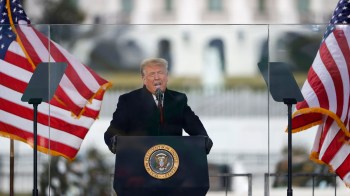Quant collapse: Goldman deflates Global Alpha fund
Global Alpha used to be one of the jewels in Goldman Sachs’ crown. A pioneer in quantitative investment strategies, Global Alpha was, for a while, Goldman’s largest hedge fund. Now Goldman is shutting it down.
At its peak in 2007, Global Alpha reportedly managed more than $11 billion in assets. Now it has less than $2 billion.
Quantitative trading is computer-driven; its statistical models were touted as a way to avoid the ups and downs of the markets. The idea is to use super computers to quickly figure out openings for investments that mere humans cannot see.
Goldman Sachs opened Global Alpha in 1997, just before the collapse of the most famous quant fund of the time, Long Term Capital Management. LTCM’s demise nearly brought down the entire financial system, but that wasn’t enough to tarnish other quant funds that were more careful and more successful.
Global Alpha’s successes inspired many other hedge funds to adopt similar strategies, luring hundreds of mathematicians to Wall Street.
We spoke today with Scott Patterson. The former Wall Street Journal reporter is author of The Quants: How a New Breed of Math Whizzes Conquered Wall Street and Nearly Destroyed It. He says that Global Alpha, like many quant funds of its time, really started to suffer in 2007 as the fist chilling effects of a global credit crunch began squeezing the financial system. Global Alpha lost billions of dollars in a matter of weeks.
Patterson says quant funds looked as though they had the perfect investing model: they performed well when the market was generally stable, from the post-LTCM late-90s right up to 2007. And they also did well in turbulent times, such as the dot com meltdown, when the computer models spotted that many tech stocks were wildly overpriced. Many fund managers began to buy the line that the algorithms could beat the markets. Patterson says this in turn led to a “Quant Bubble.” And he says this bubble has been popping non-stop since 2007.
Also on the show today, the IRS says it has dredged up $2.7 billion from people who squirreled cash away in foreign bank accounts and failed to pay tax on it. News that the Treasury is making progress in its campaign against tax dodgers – and bulking up its bank account – quickened the pace of the The Marketplace Daily Pulse today.
There’s a lot happening in the world. Through it all, Marketplace is here for you.
You rely on Marketplace to break down the world’s events and tell you how it affects you in a fact-based, approachable way. We rely on your financial support to keep making that possible.
Your donation today powers the independent journalism that you rely on. For just $5/month, you can help sustain Marketplace so we can keep reporting on the things that matter to you.


















